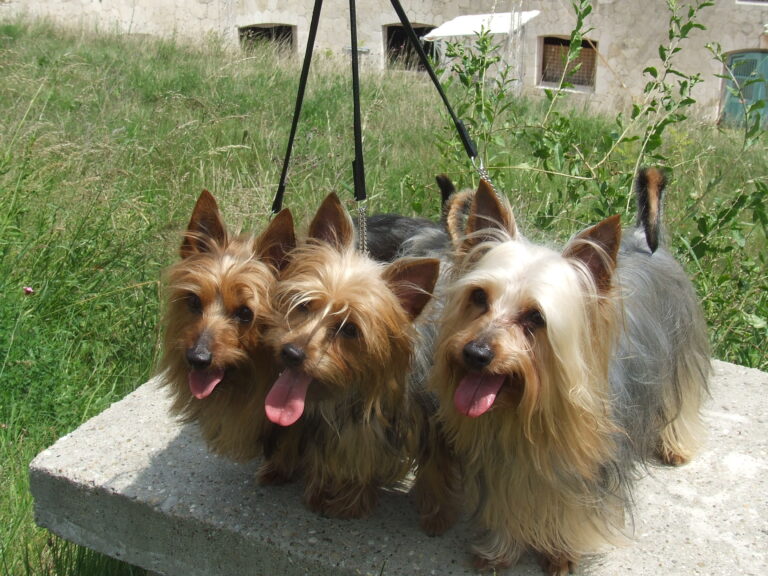15 Ways to Help Your Dog Transition from Pregnancy to Motherhood
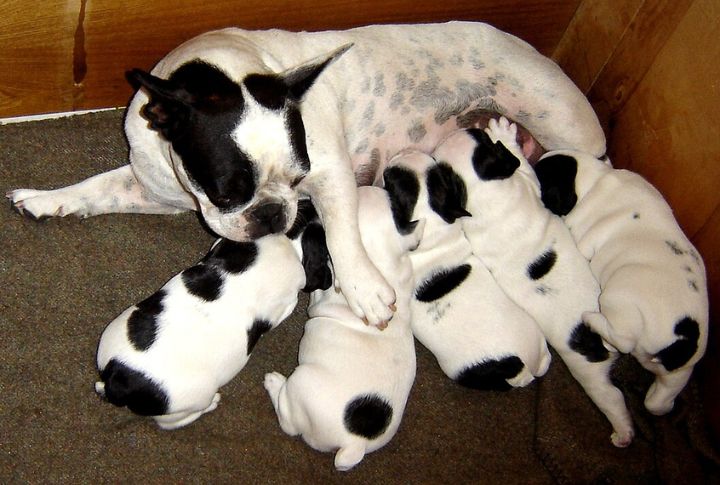
Bringing new puppies into the world is an exciting and heartwarming experience, but it can also be overwhelming for your dog. As your dog moves from pregnancy to motherhood, your support and care will help with a smooth transition. These 15 tips will help you guide your canine through this beautiful journey, making it stress-free.
Create a Comfortable Whelping Area
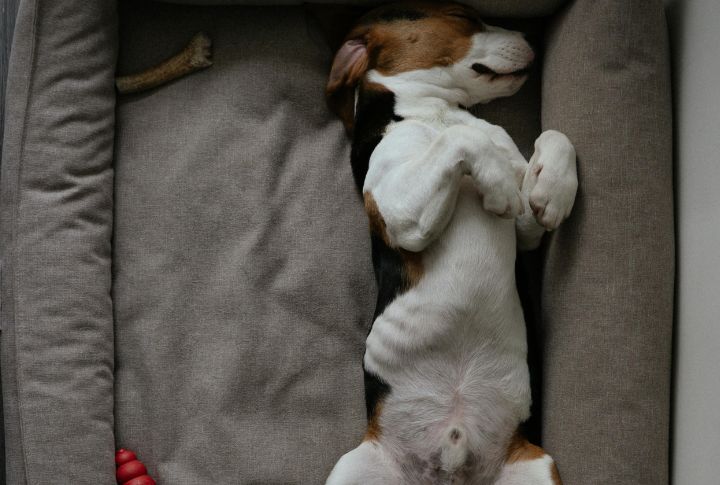
Your dog needs a safe, comfortable space to give birth and nurse her puppies. Choose a quiet, warm corner of your home and set up a whelping box lined with soft, clean blankets. This area should be free from disturbances, allowing her to bond with the puppies.
Monitor Her Health Closely
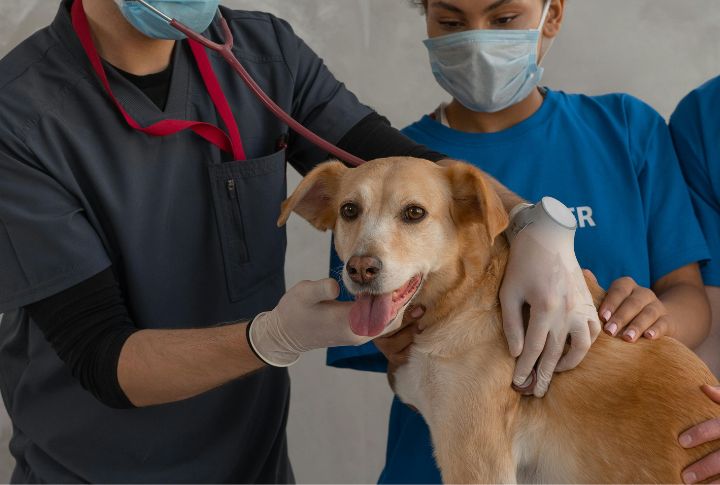
As your dog approaches her due date, keep a close eye on her health. Regular vet check-ups are essential to ensure she and her offspring are in good condition. Look out for signs of distress, such as excessive panting or lack of appetite, and consult a vet if required.
Understand the Sign of Labor
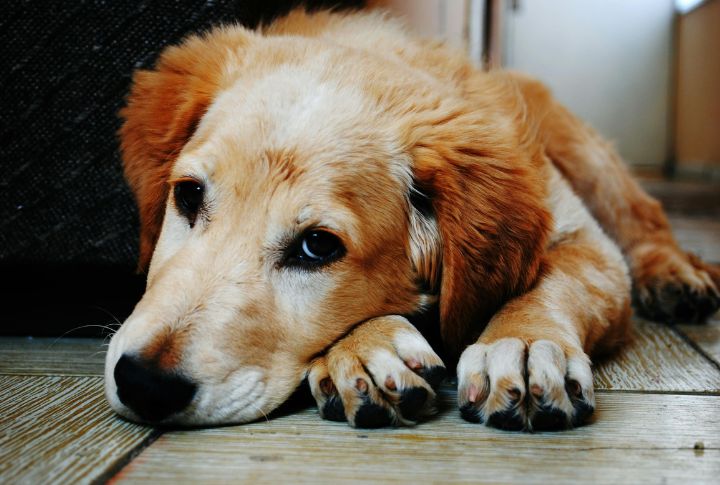
Knowing the signs of canine labor will help you assist your dog during this critical time. Watch for nesting behavior, a drop in body temperature, and restlessness. As labor progresses, your dog may start to shiver or pant. Being prepared and calm will help your dog feel secure and supported.
Be Ready to Assist During Birth

While they can deliver their puppies without help, your assistance will make a difference. Have clean towels, gloves, and your vet’s contact information on hand. Contact your vet immediately if you notice issues, such as prolonged labor or your dog’s inability to push.
Give Her Space, but Stay Close
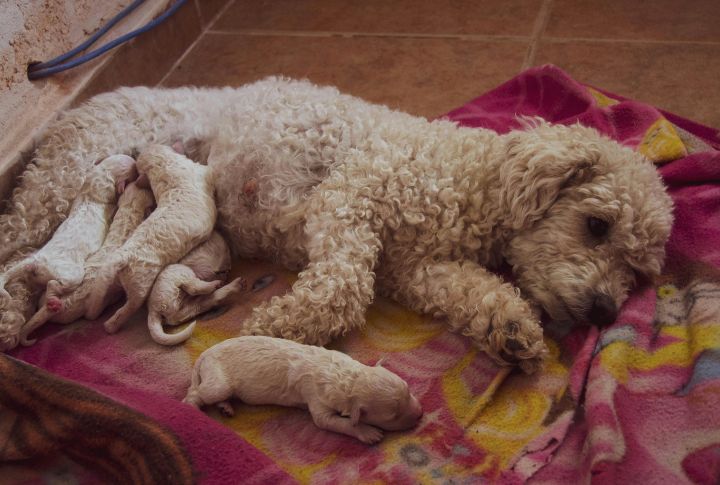
After birth, your dog will need time to bond with her puppies. Give her space to care for them, but stay nearby if she needs assistance or comfort. Your calm and reassuring presence will help her feel safe and supported, making the transition to motherhood smoother.
Keep the Whelping Area Clean
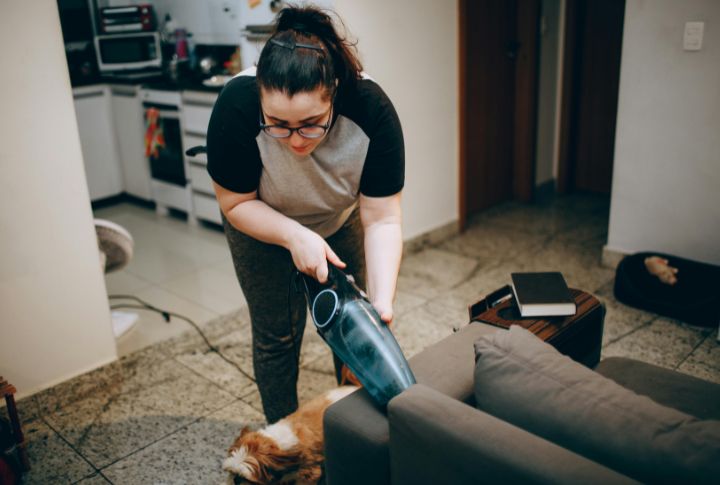
A clean environment is necessary for the mother and her puppies’ health and well-being. Change the bedding in the whelping box regularly and keep the area free from dirt and debris to prevent infections.
Provide Nutrient-Rich Food
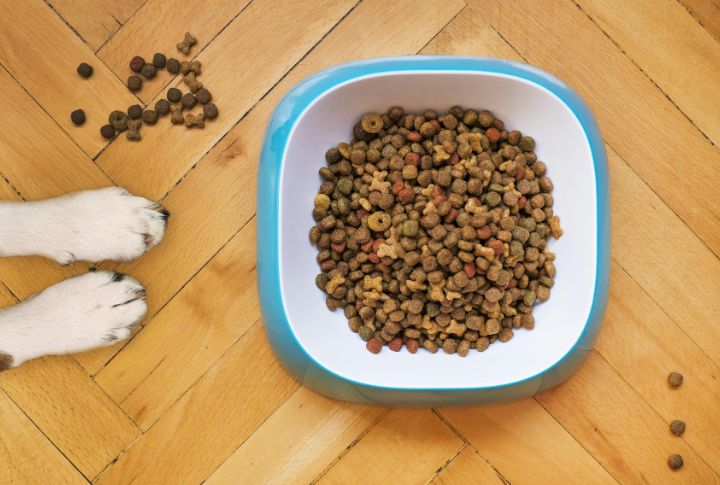
Your dog’s nutritional needs will increase as she nears the end of her pregnancy and begins nursing her puppies. High-quality, nutrient-rich food will help her maintain strength and produce enough milk. Consider switching to specially formulated food for pregnant and nursing dogs.
Keep Food and Water Close to the Nesting Area
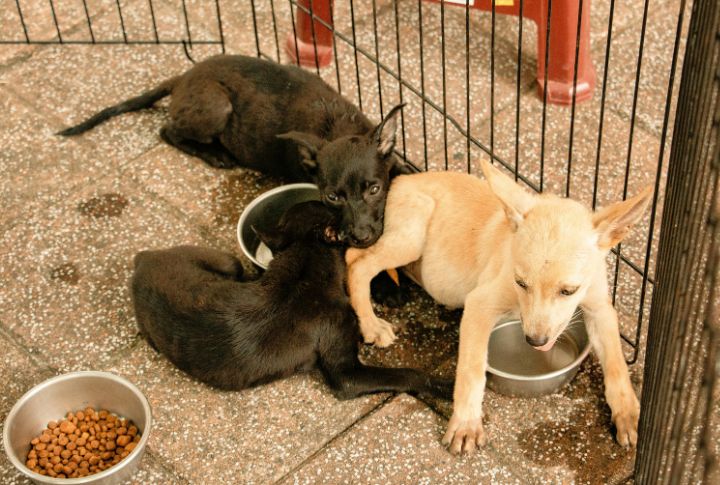
During the early days of motherhood, your dog will be reluctant to leave her pups for long. So, for her to stay nourished and hydrated, make food and water easily accessible. It allows her to eat and drink without straying too far from her puppies.
Offer Her Some Time-Out
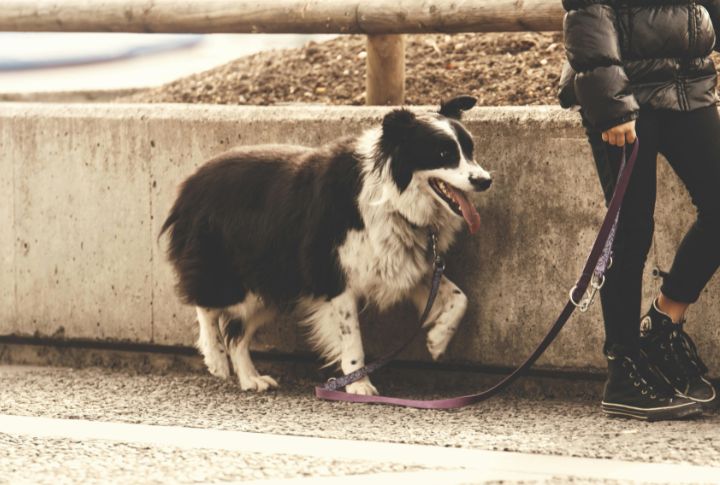
Like any new mom, your dog will appreciate some time to herself. Give her short breaks from the puppies to stretch her legs, get fresh air, or rest. These breaks help her recharge and return to her new family with renewed energy. The breaks should be brief and always under your supervision.
Check Whether Your Dog is Attentive to Her Pups
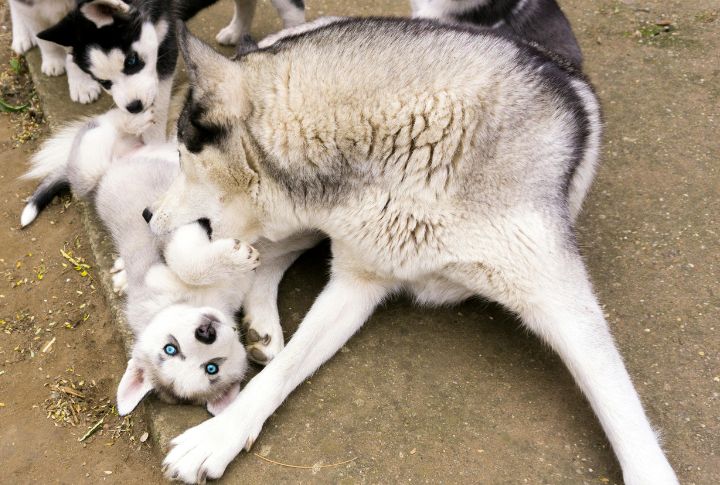
Observe how your dog interacts with her puppies in the first few days. She should be attentive—cleaning, nursing, and keeping them warm. If you notice she’s not engaging with her pups or seems disinterested, it could indicate stress, exhaustion, or a health issue.
Encourage Your Dog to Groom Her Pups
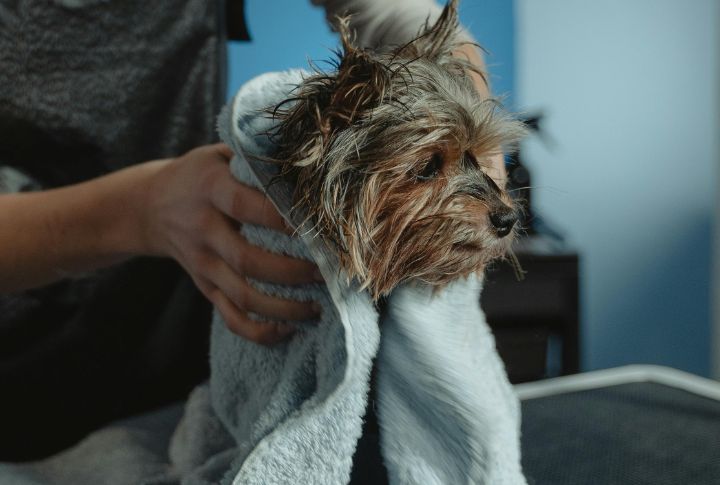
If the mother dog is not grooming her little ones, gently rub them with a warm, damp cloth to simulate the grooming process. Increase the bonding time between her and the puppies and spend time in the whelping area.
Prepare for Emotional Changes
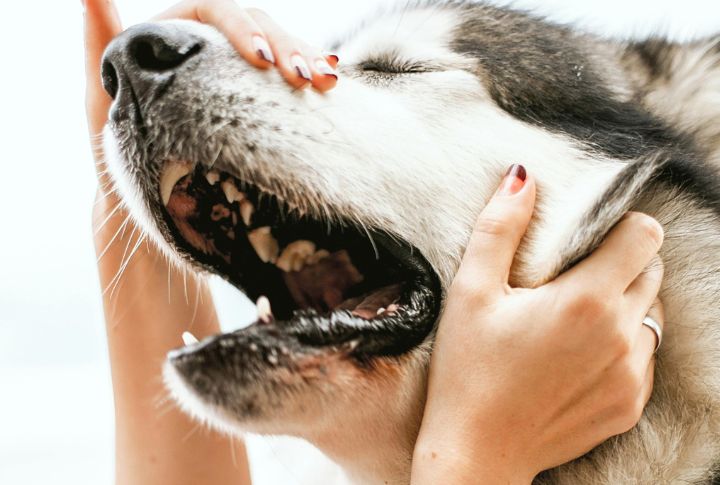
Pregnancy and motherhood can bring emotional changes, and your dog might become more affectionate, protective, or even a little moody. Be patient with your dog and provide plenty of reassurance.
Watch for Signs of Postpartum Complications
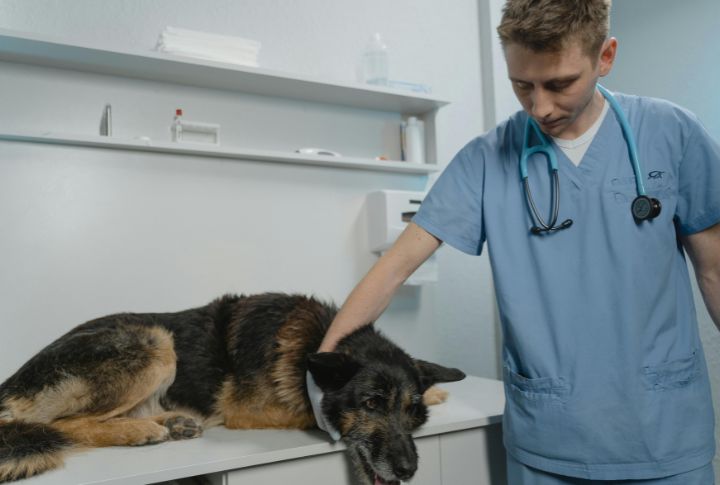
Even dogs can experience postpartum complications such as excessive bleeding, foul-smelling discharge, or a lack of interest in their puppies. If you believe any such signs exist, contact your vet immediately.
Ensure Your Dog is Nursing Her Pups
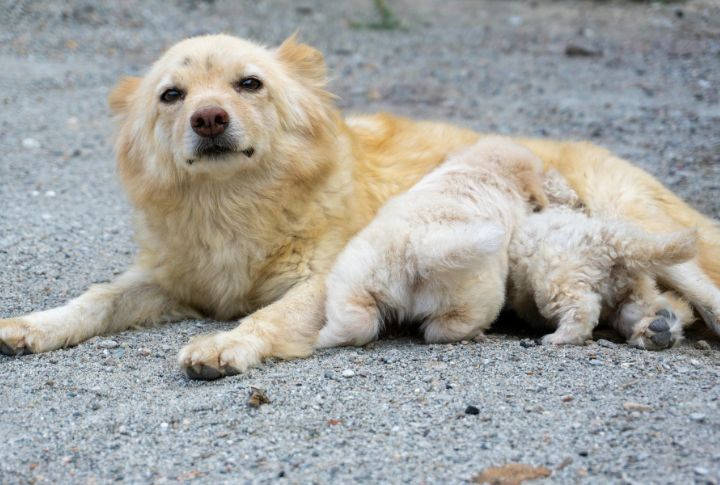
Nursing is critical for the growth and development of puppies, particularly during their initial weeks. Monitor your dog to ensure she is regularly nursing her puppies. They should feed frequently and exhibit signs of contentment, such as sleeping peacefully after nursing sessions.
Gradually Transition to Weaning
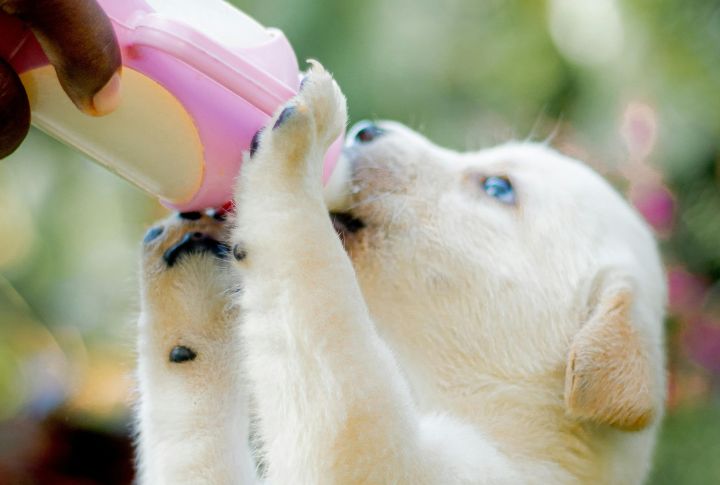
When the newborns are around four weeks old, it is time to start with the weaning process. Introduce them to puppy food while still allowing them to nurse occasionally. Gradual weaning helps reduce stress on the mother and ensures the puppies get the nutrition they need as they grow.


